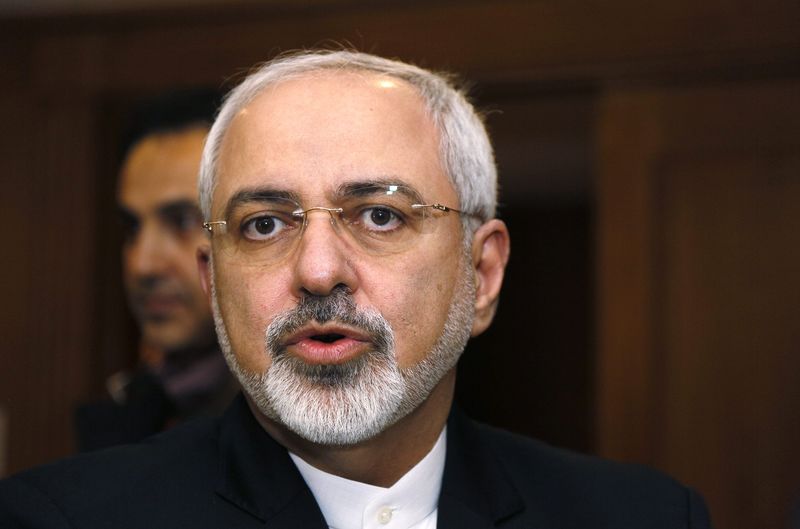DUBAI (Reuters) - Iran's Foreign Minister Mohammad Javad Zarif has postponed a visit to Saudi Arabia in protest against Riyadh's reluctance to cut oil production, a senior Iranian official said on Sunday.
Oil prices have fallen 60 percent from their June 2014 peaks, driven down by rising production, particularly of U.S. shale oil, and weaker-than-expected demand in Europe and Asia.
But OPEC -- which includes Saudi Arabia, the largest producer and exporter within the oil producer club -- decided late last year to maintain its output despite slowing economies in order to defend its market share.
Last week, Iranian President Hassan Rouhani said that countries behind the fall in global oil prices would regret their decision and warned that Saudi Arabia and Kuwait would suffer alongside Iran from the price drop.
"There is something that caused a delay in our foreign minister's planned visit to Saudi Arabia and that is the fall in the oil price," Iran's top diplomat for the Middle East, Hossein Amir-Abdollahian, told state-run al-Alam television.
The two sides have been talking about the visit for about 18 months, and a date had been tentatively set for last October.
Amir-Abdollahian added that the oil issue had adversely affected efforts to improve strained relations with Riyadh.
"Oil-producing countries in the region expect Saudi Arabia and others to make an effort to prevent harm to our economies from the long-term effects of the fall in oil prices," he said.
"We have conveyed this to Saudi officials via diplomatic channels and made it clear to them that they must correct their policy."

Regional powers Iran and Saudi Arabia find each other on opposite sides of many conflicts raging across the Middle East, including the civil wars in Syria and Iraq as well as the sectarian conflict in Iraq.